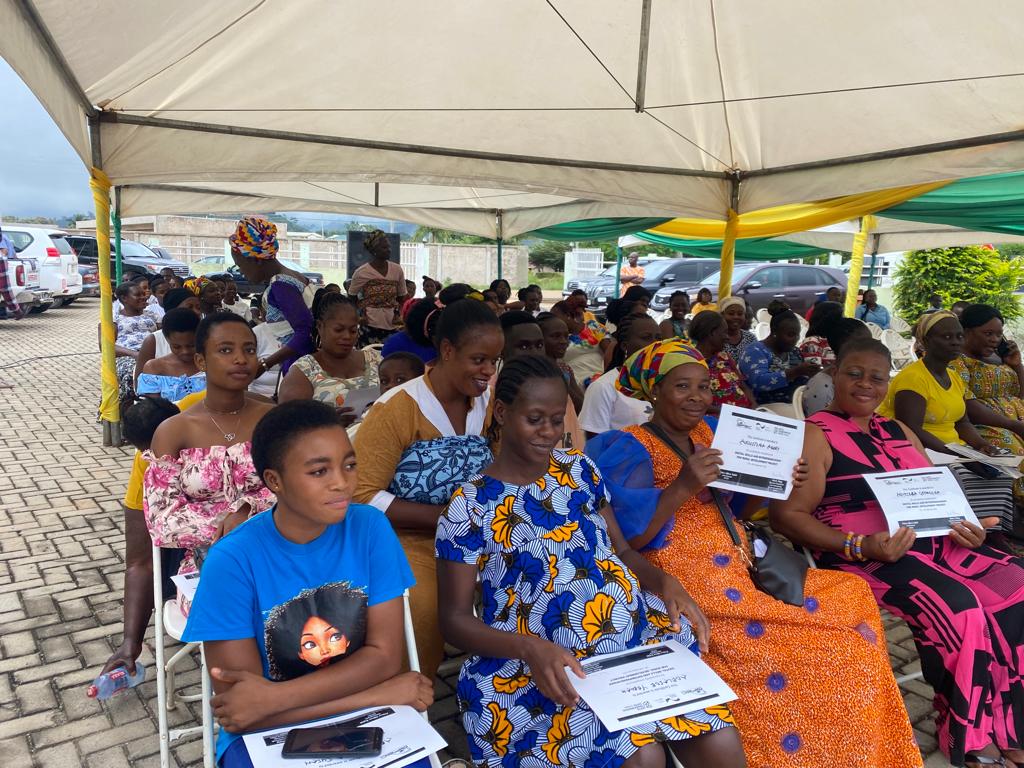Kyebi (E/R), Sept. 21, GNA – The Ghana Investment Fund for Electronic Communications (GIFEC) has called on participants of the Digital Skills and Entrepreneurship for Rural Development Project to capitalize on the skills acquired through this rare opportunity to enhance their businesses.
Mrs Eva Andoh-Poku, Deputy Administrator of GIFEC, said the Project was also to enhance their employability and your lives in general for economic benefits.
Mrs Andoh-Poku was speaking at the National climax of the Digital Skills and Entrepreneurship for Rural Development Project at Kyebi in the Eastern Region.

She said GIFEC collaborated with the GIZ, the German Agency for Development Corporation, to implement the Project, aimed to ignite interest and increase the participation in ICT for people living in unserved and underserved communities with emphasis on girls and women.
She said the purpose of the project was to expand the digital skills of Rural women and youth through ICT capacity building, education, and awareness.
Beneficiaries include Hairdressers, Seamstress, Beauticians, Market women, unemployed graduates and school dropouts in utilizing Information and Communication Technologies (ICTs) to build and expand their businesses, while making them ready for the job market.
“A vital purpose of the project is to bridge the gender digital divide with 60 per cent of beneficiaries being women,” she added.
The Deputy Administrator said in all 1,500 women have been trained to enhance their businesses through the use of ICT and Social Media tools.
She said the project had trained 2,500 participants in 40 select GIFEC Community ICT Centres (CICs) within seven days and further aspired to create awareness on the use and importance of the selected centres.
Mrs Andoh-Poku said the entrepreneurs and artisans were trained in the use of Social Media tools to enhance their businesses and trade.
She said the Fund had made key strides to facilitate ICT infrastructure development, equipment and resource provision and capacity building, in unserved and underserved communities across the country.
The Deputy Administrator said research had shown that high income countries have benefitted enormously from ICT and Internet penetration, and middle-income countries were beginning to benefit from same.
She said Western countries had leveraged ICT for the purposes of increasing productivity, promoting economic growth, and reducing poverty.
“Over the last couple of years, the urgency of ICT development has been evident due to the devastating effect of the COVID-19 pandemic,” she said.
She said as a country “we have witnessed first-hand the need to accelerate ICT deployment efforts. Rebuilding and recovering from COVID has been largely driven by technology and innovation.”
Madam Akosua Asabea Annoh, the Municipal Chief Executive of Abuakwa South Municipal Assembly, in a speech read on her behalf, said the government was keenly working towards the goal to build an inclusive digital society.
She said although they country had seen a tremendous increase in the use of mobile phones over the years, its usage has largely been limited to the making and receiving of calls.
She said knowledge and access to other ICT tools such as the internet and computers remained largely absent in rural Ghana.

The MCE said the partnership with GIZ in the project was, therefore, very thoughtful and had great potential to change the narrative.
Nana Etwienana Bra Kwante Agyeman, the Okyenhene Menatohene, commended the government for the Project to equip women and youth in digital transformation.
Miss Diana Tetteh, a Participant, told the Ghana News Agency that they were thought a lot of things that would help them operate their business like how to transact business with their mobile phone.
GNA